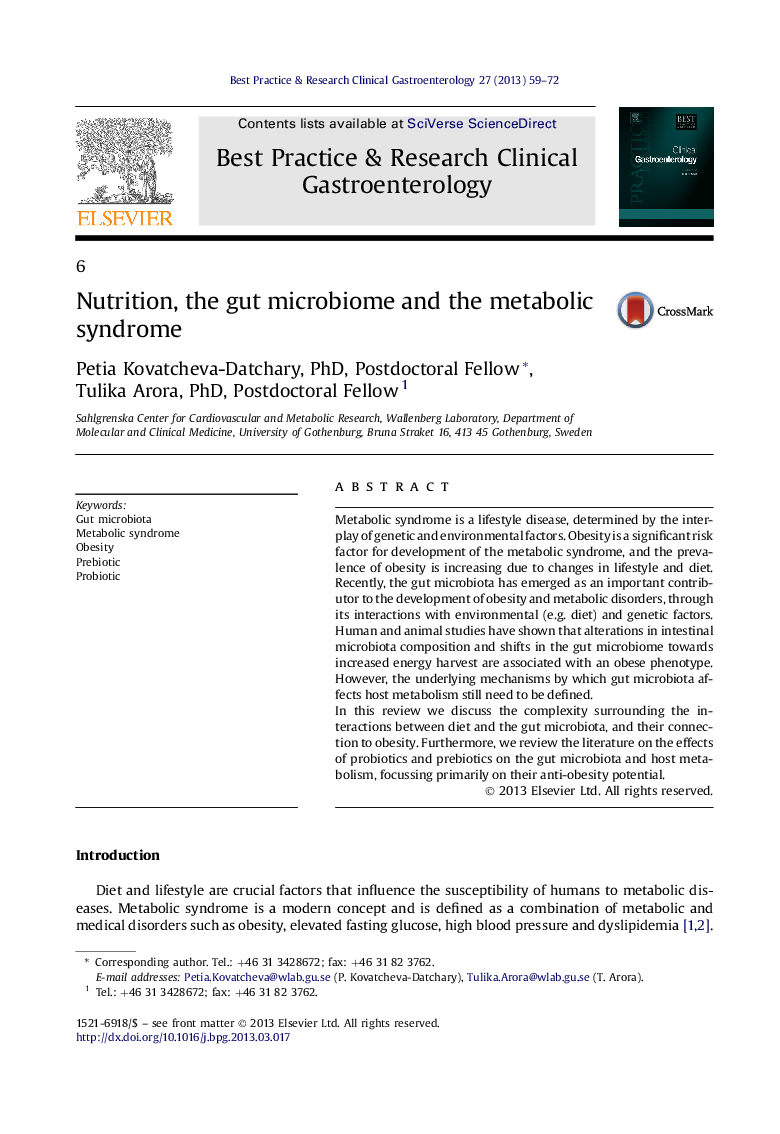| Article ID | Journal | Published Year | Pages | File Type |
|---|---|---|---|---|
| 6086368 | Best Practice & Research Clinical Gastroenterology | 2013 | 14 Pages |
Metabolic syndrome is a lifestyle disease, determined by the interplay of genetic and environmental factors. Obesity is a significant risk factor for development of the metabolic syndrome, and the prevalence of obesity is increasing due to changes in lifestyle and diet. Recently, the gut microbiota has emerged as an important contributor to the development of obesity and metabolic disorders, through its interactions with environmental (e.g. diet) and genetic factors. Human and animal studies have shown that alterations in intestinal microbiota composition and shifts in the gut microbiome towards increased energy harvest are associated with an obese phenotype. However, the underlying mechanisms by which gut microbiota affects host metabolism still need to be defined.In this review we discuss the complexity surrounding the interactions between diet and the gut microbiota, and their connection to obesity. Furthermore, we review the literature on the effects of probiotics and prebiotics on the gut microbiota and host metabolism, focussing primarily on their anti-obesity potential.
